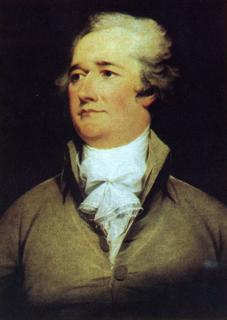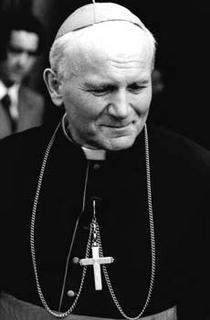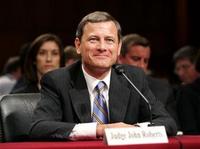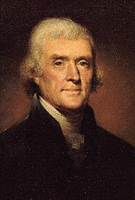
"The only good thing for men therefore is to be diverted from thinking of what they are, either by some occupation which takes their mind off it, or by some novel and agreeable passion which keeps them busy, like gambling, hunting, absorbing show, in short by what is called diversion."
This observation, by the famous French philosopher Blaise Pascal, could apply to the human person in any period of history. It is part of the human condition to create diversions in order to prevent oneself from facing the inevitable. I believe however that this statement of Pascal's is particularly relevant for today's society. Communication today is vastly easier today than it was one hundred, fifty, even twenty years ago. E-mails, Blackberries, cellphones and the like have made keeping in touch so much easier. Despite the apparent improvement in communication it is my contention that people today are less in touch with each other and, perhaps more alarming, less in touch with themselves. Aristotle's defining man as a "political animal" implies that, as persons, we have an intrinsically social dimension to our nature that requires us to live in relationship, or in communion, with other individuals. Personalism and Christian humanism broadened this understanding of our nature in that through this interaction with others, the human person comes to a greater appreciation of his own dignity and self. Thus, through authentic human interactions, the person comes to a greater awareness of his own identity and destiny. Answered through this realization are several important questions: Who am I? What is my purpose in life? What is my ultimate end? When the person lives a life of communion, the answers to these questions are eagerly sought after. There is a strong desire to face reality and to know one's self. The modern world seems to be permeated with a "noise" that makes facing these realities all the more difficult, if not impossible. These noises are precisely the diversions that Pascal so brilliantly elucidates as the problem with man's lack of self-realization. This lack of self-knowledge leads one to a false understanding of communion that has, at its base, a false understanding of the human person.
As Americans, we are known the world over for being and living "on the go." What does this phrase really imply? How is this way of life better than, or worse than, the way of life in the past? Even the meals we eat are catered around this "on the go" theme. It seems that the once valued and sought after "peace and quiet" has been replaced by "on the go."At the end of the day, when there is finally some time to ourselves, we turn on some music or pop in a movie. Throughout the day we are occupied with various diversions, and when we take care of those, we immediately create more with which to occupy ourselves. Rarely will one encounter silence in the average American household on a typical evening. By silence, I do not mean some kind of void or vacuum in which there is no sign of activity or life. Rather, silence understood in the contemplative sense that fosters healthy reflection on the part of the individual. On the contrary, there are usually televisions blaring, music blasting or video games dazzling. All these things together in such excess prevent us from facing that which we fear more than anything, namely our own state of being in the big picture of life and death. In reality, we love the daily little hassles we encounter and about which we complain. They keep us marvelously distracted from the important things. We don't want to reach the end of our pursuits, for inevitably, this will bring us to a halt. What we do want is the very pursuit, the means, without the end. All the while convincing ourselves that the end will make us happy. As Peter Kreeft, citing Pascal, depicts it: "His (Pascal's) penetrating question here is: What does the gambler (symbolically, all of us)
want? a) Not just the winnings, and b) not just the playing, but c) the self-delusion that comes from "the if-only syndrome"; the false faith that winning would make him happy."
It is indeed a remarkable indictment of our frail and elusive human condition. We're all guilty of this at one point or another. A remedy to this sickness is to make time in our lives for silence in our daily lives. Only in silence can we hear ourselves calling for aid.
As human persons, we face real needs at every level of our existence, physical, intellectual and spiritual. Today, it is clearly the spiritual dimension that is at a sore disadvantage. To some extent, the physical and intellectual are being over-fed to the neglect of the spiritual. Pascal commentator Thomas Morris, in reference to the spiritual realm says, "Access to this reality, or to this order of reality comes through what Pascal metaphorically called 'the heart.' It is the realm of charity, piety, and true communion with God." One can read from this the importance of a correct relationship with others. Christianity teaches that within a correct understanding of (and relationship with) God is a proper relationship with those around us. We seem to have lost, to a troubling degree, the importance of communion with God and with the "other." Despite the fact that communication has become so easy, at the
personal level it seems to be quite superficial. How can we come to know others if we fail to know even ourselves? This failure to know ourselves is the result of the diversions with which we surround ourselves. Often, while out to dinner at a restaurant, I glance around and observe people talking at length on their cell phones while sitting at a table with someone else. This common occurrence underscores a trend in our society. Even in a crowded room, many people feel a deep loneliness. There exists a kind of detachment from many people that has at its source, I believe, a detachment from self. If we can't take the time to get to know ourselves why should we, and how can we, take the time to get to know others around us? Pascal describes well the state of man trapped in this scenario. "Boredom. Man finds nothing so intolerable as to be in a state of complete rest, without passions, without occupation, without diversion, without effort. Then he faces his nullity, loneliness, inadequacy, dependence, helplessness, emptiness. And from the depths of his soul, boredom, gloom, depression, chagrin, resentment, despair." To escape boredom, the solution for such an individual is to create diversions and call them relationships. Many of these relationships turn out to be, as stated before, quite superficial and asinine.
In order to fix this malady, we must return to a proper understanding of our own identity. Pascal is adamant that only through the Person of Jesus can our lives make sense and it is only through Him that our lives are complete. Pascal says it thus: "Not only do we only know God through Jesus Christ, but we only know ourselves through Jesus Christ; we only know life and death through Jesus Christ. Apart from Jesus Christ we cannot know the meaning of our life or our death, of God or ourselves." Thus it is impossible to come to a complete understanding of our own identity and existence apart from the Person of Christ. The reality of the Incarnation, of the Word becoming Flesh, sheds a beam of light on the meaning of human fulfillment. Pascal reminds us to "consider Jesus in every person, and in ourselves." Human fellowship can only come through the realization of a common bond in the Person of Christ. The first step for the individual person is to encounter Christ within the silent corridors of our souls. This personal encounter with Christ, of which Pascal spoke of so beautifully, is the summit and purpose of human existence.










